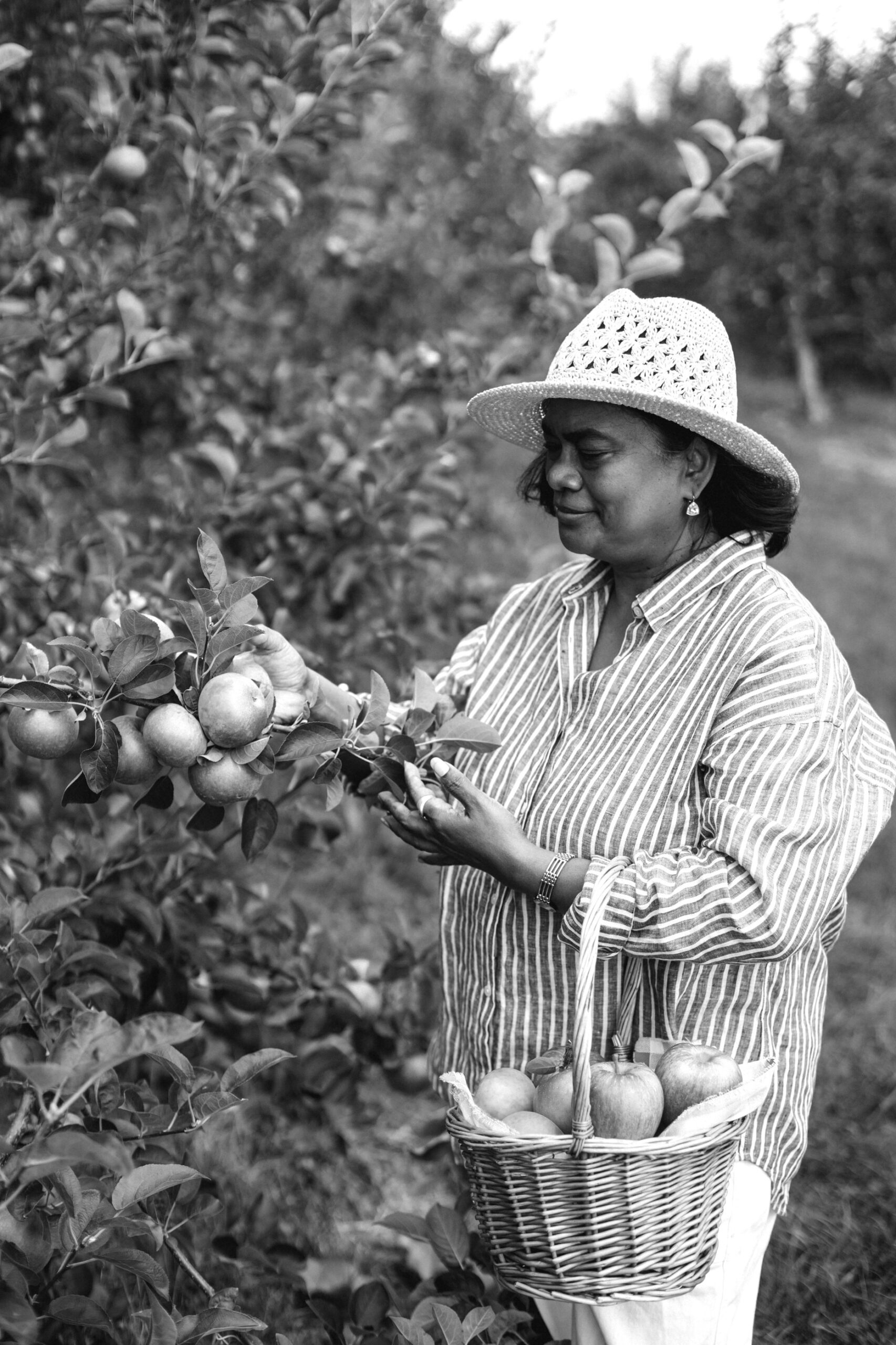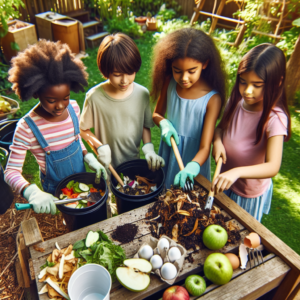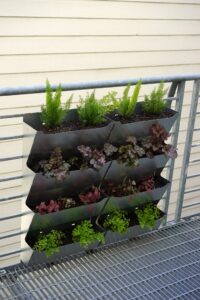Contents
- 1 Gardening for Mental Wellness: A Grounded Approach
- 2 Decoding the Science of Soil
- 3 Soil-Infused Serenity: Practical Benefits
- 4 Hands-On Health: Engaging with Soil
- 5 Scientifically Green: Studies on Soil and Mental Health
- 6 Tending to Your Mind: The Therapeutic Practice of Gardening
- 7 Results of Reconnection: Observations from Soil and Health Interactions
- 8 Author
Gardening for Mental Wellness: A Grounded Approach

“Magnolia Tree ~ spring has arrived in …” from www.flickr.com
When we think about gardening, we often consider the visual beauty and the bounty it brings. But there’s a hidden layer to this activity that has profound effects on our mental wellness. Let’s dig a little deeper and unearth the science behind the soil’s impact on our psyche.
Ever notice how time spent with your hands in the dirt leaves you feeling rejuvenated and calm? It’s not just the joy of nurturing life that does this, but the very soil itself that has therapeutic properties. Gardening is not only about growing plants; it’s a way to cultivate happiness and peace of mind.
Defining the Relationship Between Gardening and Well-being
Gardening is a holistic experience. It engages the senses, requires physical activity, and offers a creative outlet. It’s a natural stress-reliever, providing a space where worries can be momentarily set aside as you focus on the rhythm of nature.
Decoding the Science of Soil

“10 Companies in the Soil Conditioners …” from www.verifiedmarketreports.com
Soil is alive, teeming with organisms and rich in chemical compounds that, believe it or not, can influence our mood. When we garden, we’re not just touching dirt—we’re coming into contact with a living ecosystem that interacts with our bodies in surprising ways.
For instance, the act of planting a seed requires focus, which in turn, promotes mindfulness—a mental state where you’re fully present and engaged in the moment. This mindfulness has been linked to reduced levels of stress and an increase in overall happiness.
-
Soil contains natural antidepressants like Mycobacterium vaccae, which can boost serotonin levels.
-
Gardening activities can lower cortisol, a hormone associated with stress.
-
Regular interaction with soil can improve cognitive function and increase a sense of well-being.
-
The physical exercise involved in gardening helps release endorphins, the body’s natural mood lifters.
-
Exposure to sunlight during gardening increases Vitamin D levels, which can combat depression.
Chemical Constituents of Soil and Their Psychological Effects
It’s fascinating to consider that soil contains compounds that can act as natural antidepressants. Mycobacterium vaccae, a bacterium found in soil, has been shown to increase levels of serotonin in the brain, which is the same neurotransmitter targeted by many antidepressant medications.
This bacterium, when inhaled or absorbed through the skin while gardening, can stimulate serotonin production, which helps regulate mood, appetite, and sleep. It’s like the earth is offering its own brand of happiness, right beneath our feet.
-
Mycobacterium vaccae is linked to increased serotonin levels and improved mood.
-
Soil contains compounds that can reduce inflammation, which is associated with stress and mental health disorders.
-
Gardening can trigger the release of dopamine, a neurotransmitter that rewards us with feelings of pleasure.
Next time you’re feeling down, instead of reaching for a snack or your phone, try grabbing a trowel. Planting something new might just plant the seed of joy in your day.
The Role of Microbial Communities in Enhancing Mood
The soil is not just a medium for plant growth; it’s a hub for microorganisms that play a role in our mental health. These tiny creatures can have a big impact on how we feel.
When we garden, we’re not just interacting with the plants but also with a vast array of microbes that can influence our brain chemistry. It’s a symbiotic relationship where these microorganisms thrive in the soil, and we reap the mental health benefits from their presence.
Consider the story of a community garden project in a local neighborhood. Once a dull and unused space, the area was transformed into a vibrant garden. The residents who participated reported feeling more connected to each other and experienced a noticeable improvement in their mood and stress levels.
This is a testament to the power of soil and community in promoting mental wellness. It’s not just about the individual but also about the collective experience of growing together.
Soil-Infused Serenity: Practical Benefits

“English lavender (Lavandula …” from www.picturethisai.com
Engaging with soil isn’t just for those with a green thumb. It’s for anyone seeking a simple and natural way to enhance their mental wellness.
Whether it’s tending to a small herb garden on your windowsill or joining a community gardening project, the act of connecting with soil can be a gateway to tranquility and a more balanced state of mind.
-
Starting a garden can be as simple as planting herbs in a pot.
-
Community gardens offer a chance to connect with others and nature.
-
Even routine tasks like weeding or repotting plants can have calming effects.
-
Creating a compost pile can be a rewarding way to give back to the earth and reduce waste.
-
Watching something grow from seed to plant is a powerful reminder of life’s cycles and resilience.
So, let’s roll up our sleeves and get our hands dirty. It’s time to let the soil speak to our senses and soothe our spirits.
Stress Reduction Through Horticultural Practices
Gardening is a practice as old as civilization itself, but its stress-reducing benefits continue to be relevant in our modern world. The repetitive nature of gardening tasks can be meditative, allowing for a gentle release of tension and a return to a state of equilibrium.
Think of it as a form of green therapy, where the simple act of caring for plants can help manage stress. It’s a way to take a break from the digital screens and the hustle of everyday life, and just be present with the earth.
-
Watering plants can be a calming ritual that signifies nurturing and growth.
-
Pruning can represent the act of letting go of life’s deadweight, promoting emotional release.
-
Harvesting the fruits of your labor can provide a sense of accomplishment and satisfaction.
-
Even the act of digging in the soil can be grounding, connecting you to the earth’s stabilizing energy.
By incorporating these horticultural practices into your routine, you’re not just growing a garden; you’re growing a sanctuary for your mind.
Evidence-Based Analysis: Soil Interaction Reduces Anxiety
It’s not just anecdotal evidence that supports the calming effects of gardening; scientific studies back it up. Research has shown that interacting with soil can have a measurable impact on reducing anxiety and improving mental health.
One study found that after just 30 minutes of gardening, participants’ cortisol levels, often referred to as the stress hormone, were significantly reduced. This suggests that even a short period of time spent with soil can help alleviate stress.
So, the next time you feel anxiety creeping in, consider turning to your garden. It might just be the natural remedy you need.
Hands-On Health: Engaging with Soil

“U.S. Marine Corps veteran Calvin | Free …” from www.rawpixel.com
Let’s get practical and talk about how to make the most of soil’s health benefits. Engaging with soil doesn’t have to be complicated; it’s about finding ways to incorporate it into your daily life. Whether you live in an apartment or have acres of land, there’s an opportunity for you to connect with the earth.
For city dwellers, container gardening is a fantastic way to bring nature to your doorstep. Choose a sunny spot on your balcony or windowsill, and start with easy-to-grow herbs like basil or mint. Not only will you have fresh flavors at your fingertips, but you’ll also have the chance to interact with soil every day.
For those with more space, consider creating a dedicated garden plot. Start small to avoid feeling overwhelmed. Choose plants that are known for their resilience and low maintenance, such as sunflowers or zucchini. As you tend to them, you’ll not only watch your garden grow but also feel your stress levels diminish.
-
Container gardening is perfect for small spaces and beginners.
-
Creating a garden plot can be a rewarding long-term project.
-
Choose plants that suit your space and lifestyle for the best experience.
-
Remember to engage your senses as you garden—feel the soil, smell the herbs, and listen to the sounds of nature.
-
Don’t be afraid to get a little dirty—it’s all part of the hands-on health experience!
And let’s not forget about the kids. Encouraging children to play and garden in the soil is not only fun but also beneficial for their development and mental health. It’s a natural and playful way to reduce screen time and increase family time.
Strategies for Introducing Soil-Based Activities
Introducing soil-based activities into your routine can be simple and enjoyable. Start by setting aside a specific time each week for gardening. Make it a ritual, something you look forward to. Whether it’s a Sunday morning or an evening after work, find a time that works for you.
Another strategy is to involve friends and family. Gardening can be a social activity that strengthens relationships and builds community. Share the experience with others and enjoy the collective benefits.
And remember, gardening doesn’t have to be just about food. Flower gardening can be equally therapeutic. The vibrant colors and fragrances can be a feast for the senses, offering a different kind of satisfaction and joy.
-
Set a regular gardening schedule to build a routine.
-
Involve others to make it a social and communal activity.
-
Experiment with different types of gardening, like flowers or succulents.
-
Attend gardening workshops or join local gardening clubs to learn and connect.
-
Use gardening as an opportunity to learn about nature and sustainability.
By integrating these strategies into your life, you’re not just cultivating a garden; you’re nurturing your mental health.
Assessing the Impact: From First-Time Gardeners to Seasoned Green Thumbs
Whether you’re new to gardening or have been doing it for years, it’s important to take a step back and assess the impact it has on your well-being. Pay attention to how you feel before, during, and after gardening. Do you notice a sense of calmness? A feeling of accomplishment? These are signs that your time in the soil is working its magic.
For those just starting out, keep a journal of your gardening experiences. Note any changes in your mood or stress levels. For the experienced gardeners, try changing up your routine or introducing new plants to keep the experience fresh and challenging.
Regardless of your level of experience, the key is to stay mindful and present while you garden. This is when you’ll truly feel the therapeutic benefits of soil.
-
Keep a gardening journal to track your mental wellness journey.
-
Be mindful of your emotions and stress levels before and after gardening.
-
For seasoned gardeners, introduce new elements to keep the practice engaging.
-
Use gardening as a time for reflection and personal growth.
-
Share your gardening successes and challenges with a community to enrich the experience.
Remember, the goal is not to have the perfect garden but to use gardening as a tool for improving mental health. So, embrace the imperfections and enjoy the process.
Scientifically Green: Studies on Soil and Mental Health

“Shared Experience: Gardening isn’t …” from thedeclarationatcoloniahigh.com
It’s time to look at the hard evidence. Over the years, numerous studies have shed light on the connection between soil and mental health. These studies have consistently shown that gardening can lead to improvements in mood, anxiety, and even cognitive function.
For example, a study published in the Journal of Health Psychology found that gardening could reduce stress more effectively than other leisure activities. Participants who gardened experienced a more significant decrease in stress compared to those who read indoors.
But it’s not just about stress. Gardening has been linked to a host of other mental health benefits, including increased self-esteem, improved attention, and a reduction in symptoms of depression and anxiety.
-
Gardening has been proven to reduce stress more than other leisure activities.
-
Engaging with soil can increase self-esteem and improve attention.
-
Regular gardening can lead to a reduction in symptoms of depression and anxiety.
-
Studies have shown that even viewing green spaces can have a calming effect.
-
Gardening can be a complementary therapy for those with mental health conditions.
These findings underscore the importance of incorporating green spaces and gardening into our lives. It’s not just about the aesthetic appeal; it’s about the profound impact on our mental wellness.
Groundbreaking Research: Soil Bacteria as Natural Antidepressants
The idea that bacteria could have antidepressant properties might seem strange at first, but the research is compelling. Scientists have identified specific bacteria in soil that can mimic the effects of antidepressant drugs, without the side effects.
One such bacterium, Mycobacterium vaccae, has been shown to stimulate the production of serotonin, leading to an elevation in mood and a decrease in anxiety. It’s a groundbreaking discovery that opens up new possibilities for natural mental health treatments.
So, while we may not think of bacteria as our friends, when it comes to soil, they just might be some of our best allies in the quest for mental wellness.
Serenity in Sustainability: Community Gardening and Social Well-being
Community gardens are more than just shared spaces for growing food; they are incubators for social well-being. They bring people together, fostering a sense of community and collective purpose.
Participating in a community garden can help reduce feelings of isolation and loneliness. It’s a place where people can share knowledge, resources, and the fruits of their labor. The social interaction and the satisfaction of contributing to a community project can be incredibly uplifting.
So, consider joining a community garden. It’s a chance to grow not just plants but also relationships and a sense of belonging.
-
Community gardens can help combat loneliness and isolation.
-
They offer opportunities for social interaction and skill-sharing.
-
Contributing to a community project can increase feelings of satisfaction and purpose.
-
Community gardens promote sustainable living and environmental responsibility.
-
They can be a source of fresh, locally grown food, contributing to physical health as well.
In the end, whether it’s a solitary pursuit or a community endeavor, gardening offers a natural and accessible path to mental wellness. So, take the time to connect with the soil, and let it nurture not just your garden, but your mind and spirit as well.
Tending to Your Mind: The Therapeutic Practice of Gardening

“Bouncing-bet (Saponaria officinalis …” from www.picturethisai.com
Think of your garden as a sanctuary for the mind. Just as you nurture your plants, you’re also nurturing your mental space. Every seed sown is a commitment to personal growth, and every weed pulled is a removal of life’s unnecessary stresses.
Growth and Nourishment Beyond Plants: Personal Development Through Gardening
In the garden, we don’t just grow plants—we grow ourselves. Each gardening session is an opportunity to cultivate patience, resilience, and mindfulness. As our garden flourishes, so does our ability to handle life’s challenges with grace and adaptability.
Personal development in the garden comes in many forms. You learn to be patient as you wait for seeds to sprout. You develop resilience as you find ways to combat pests and diseases. And you practice acceptance, understanding that not everything will grow as planned, and that’s perfectly okay.
It’s a beautiful cycle: As your garden grows, you do too.
Mindfulness and Presence: The Meditative Qualities of Soil Work
Gardening is a practice of mindfulness. When you’re in the garden, you’re present in the moment—there’s just you and the soil. The act of planting, weeding, or even just observing the subtle changes in your garden can be a form of meditation, bringing a sense of peace and grounding.
Soil work requires attention to detail and a gentle touch, which naturally brings your focus to the here and now. It’s a break from the constant buzz of thoughts about the past and the future, and a chance to simply be.
Let the rhythm of your gardening tasks be your guide to a more mindful, present state of being.
Results of Reconnection: Observations from Soil and Health Interactions
Reconnecting with soil can have profound effects on our health and well-being. It’s a relationship that’s as old as humanity itself, but in our modern lives, we’ve become detached from this natural bond. When we rekindle this connection, the results can be remarkable.
Quantifiable Health Benefits: Reduced Stress and Improved Emotional States
The health benefits of engaging with soil and gardening are not just anecdotal; they’re quantifiable. Studies have shown that gardening can lead to reduced stress levels, improved mood, and a greater sense of well-being. These benefits are accessible to everyone, regardless of gardening skill level.
Consider the evidence: cortisol levels, a key indicator of stress, have been shown to drop after time spent in the garden. Moreover, people who engage with gardening report feeling happier and more at peace. It’s a simple equation—soil plus effort equals improved emotional states.
And it’s not just adults who benefit. Children who participate in gardening activities often show increased self-esteem and better emotional resilience. It’s a powerful tool for development and a healthy habit to instill from a young age.
So, whether you’re tending to a vast vegetable garden or a single houseplant, know that the simple act of connecting with soil can lead to a happier, healthier you.
Expanding the Research: New Frontiers in Horticultural Therapy
The field of horticultural therapy is blossoming, with new studies continually expanding our understanding of how soil and plants can be used for therapeutic purposes. Researchers are exploring a variety of settings, from schools to nursing homes, to understand how different groups can benefit from gardening activities.
Innovative programs are integrating gardening into mental health treatment plans, offering a complementary approach to traditional therapies. The results have been promising, showing that horticultural therapy can lead to improved outcomes for individuals with a range of mental health challenges.
As we continue to explore these new frontiers, the potential for horticultural therapy to become a mainstream component of mental health care grows. It’s an exciting time for those of us who believe in the healing power of the earth.
-
Research is expanding into diverse settings, including educational and healthcare institutions.
-
Horticultural therapy is showing promise as a complementary approach to traditional mental health treatments.
-
Studies are exploring the benefits for specific populations, such as veterans, the elderly, and children with special needs.
-
There is an increasing interest in understanding the physiological mechanisms behind the therapeutic effects of gardening.
-
The future may see horticultural therapy as a widely accepted and integral part of holistic mental health care.
It’s not just about the physical benefits, either. Gardening can provide a sense of accomplishment, promote mindfulness, and foster a connection to the living world around us. These psychological and emotional benefits contribute to a more balanced and fulfilling life.



